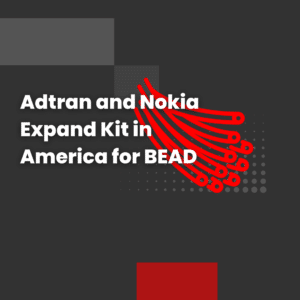The anticipation hardly comes as a surprise, considering Dish’s aspiration to solidify its standing as the fourth contender in the US mobile market. However, this ambition could translate into a substantial financial commitment for a company already grappling with financial challenges.
UScellular, along with its parent company Telephone and Data Systems (TDS), recently unveiled their joint decision to “explore strategic alternatives” for their wireless business. Although concrete details about these alternatives are yet to emerge, the industry is naturally speculating about the possibility of a sale.
Walter Carlson, TDS Chairman, remarked, “The TDS board believes that now is the right time for a comprehensive review of strategic alternatives for UScellular. We will pursue the pathway that is in the best interest of shareholders.”
Dish Network is a prominent contender for a potential acquisition, alongside the three major mobile network operators – assuming they navigate the intricate regulatory landscape. Additionally, significant infrastructure players likely have their sights set on UScellular’s network of communication towers.
Dish Network’s executives openly discussed the prospect of pursuing this opportunity, even in the absence of detailed information from TDS and UScellular.
Tom Cullen, Executive Vice President of Corporate Development at Dish Network, stated, “There’s not a lot of information in the market yet as to the process.” He further highlighted that UScellular’s spectrum, tower assets, and coverage in untapped areas are compelling attributes for Dish. Cullen’s sentiments were echoed by Charlie Ergen, Executive Chairman of both Dish Network and EchoStar, who acknowledged the regulatory complexities associated with such a transaction.
Ergen recognized that potential regulatory hurdles could be a challenge for larger mobile operators as well as Dish. Despite potential obstacles, Ergen perceived the potential sale of UScellular assets as an opportunity that aligns with Dish’s strategic objectives.
While the financial implications remain less explicit, it’s evident that the executives’ openness about Dish’s interest in UScellular indicates that financial constraints aren’t insurmountable barriers.
Following the announcement by TDS and UScellular, a noticeable surge in share prices for both companies was reported. Consequently, UScellular’s market capitalization reached approximately US$3 billion, with its annual revenue hovering around $4 billion for the past five years.
Although this may not be a staggering sum in the realm of telecom mergers and acquisitions, it holds significant weight, especially considering Dish’s substantial investment in its ongoing 5G network deployment. The company’s recent merger with sister entity EchoStar was primarily aimed at bolstering its financial standing.
Cullen’s observation about complementary geographic coverage stands as a major incentive for Dish. To remain competitive within the US mobile market, Dish requires extensive coverage and scale, making the acquisition of UScellular a potentially valuable move.
While the timeline for further updates from UScellular remains uncertain, Dish’s involvement in potential M&A activities related to the situation cannot be dismissed.




